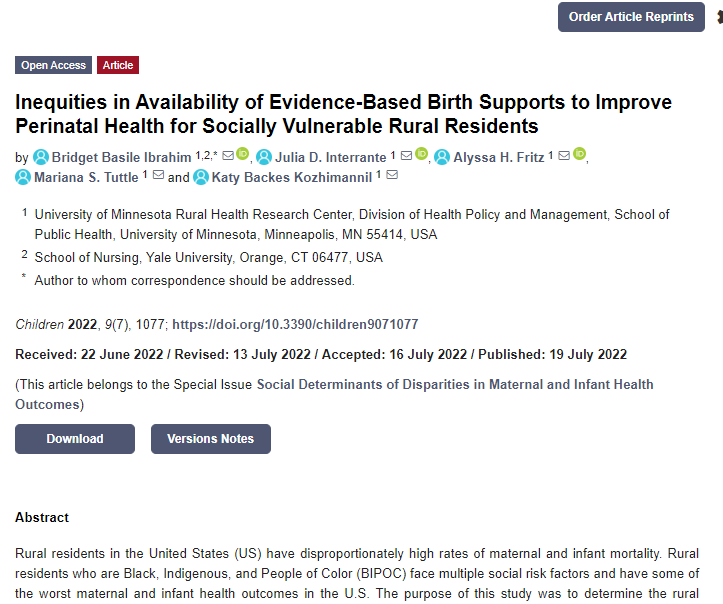Given that rates of maternal and infant mortality are disproportionately high for rural residents in the United States, a survey of 93 rural hospitals nationwide sought to determine the availability of evidence-based supports for maternal and infant health in rural areas. Majority-BIPOC counties with responding rural hospitals were more likely to be highly socially vulnerable than majority-white counties with responding hospitals (as measured by the CDC’s Social Vulnerability Index). At least half of all responding hospitals reported a lack of community access to maternal and infant health resources, although evidence-based services were particularly unavailable in the most socially vulnerable counties. Supports including nurse home visiting, certified lactation support, doula care, childbirth education classes, and postpartum support groups were all significantly less available in the most vulnerable counties. The authors point to structural racism as a cause for these disparities and offer several policy levers that might improve access to these supports, including greater investment in WIC and efforts to increase enrollment of qualified pregnant people in WIC and Medicaid as early in pregnancy as possible. Workforce programs are also offered as a potential solution to draw more maternal and infant health professionals to vulnerable areas.

